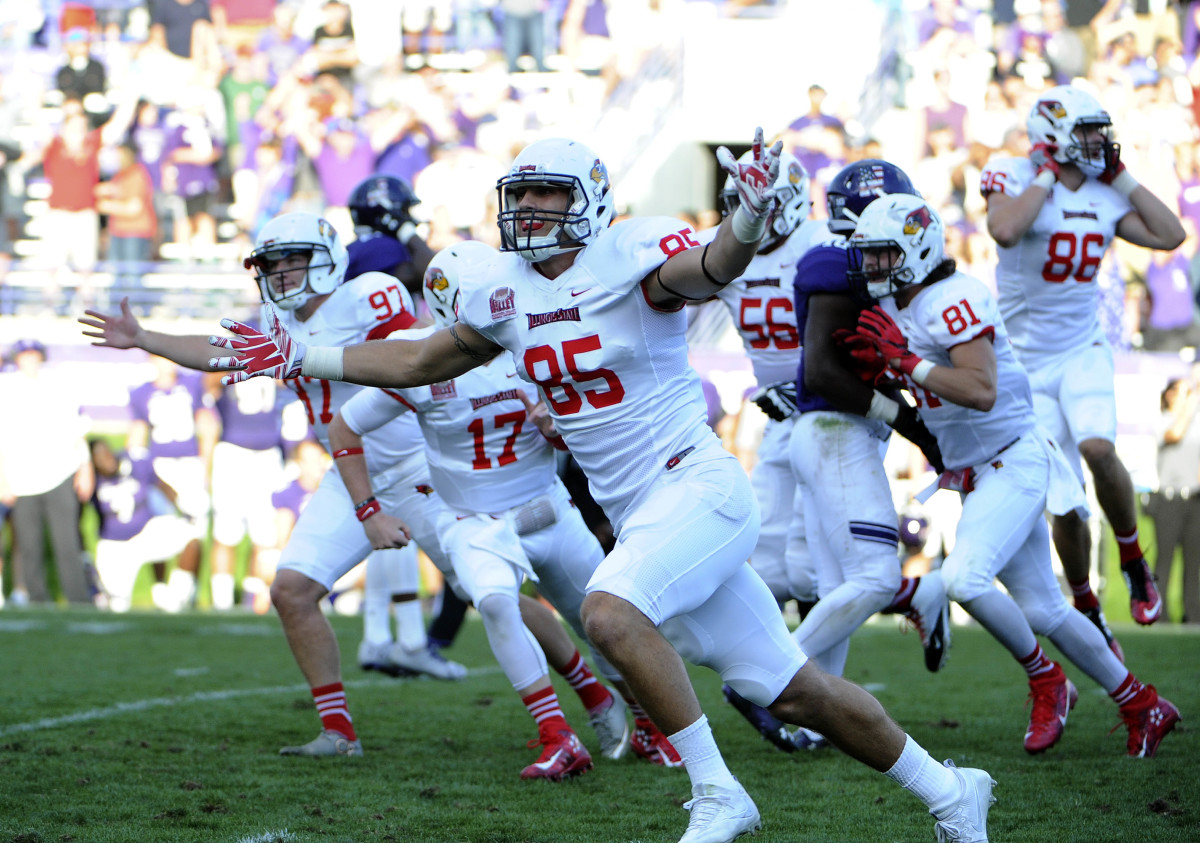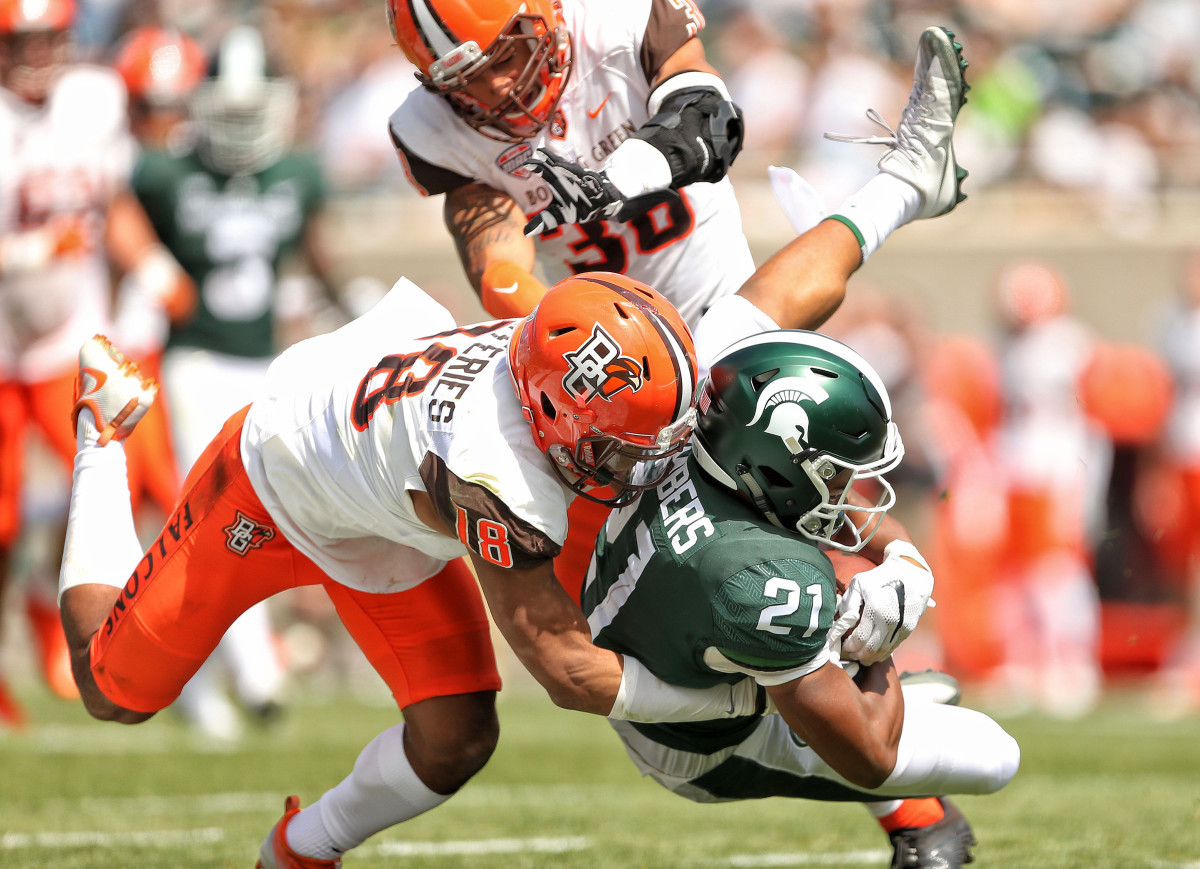Illinois State & Bowling Green ADs Express Disappointment In Big Ten’s Decision
CHAMPAIGN, Ill. -- Illinois State athletics director Larry Lyons got a phone call on Thursday from Josh Whitman that neither man wanted to participate in.
Whitman, the athletics director at Illinois, was calling the ISU athletics boss personally to announce the season-opening football game between the two schools would not be taking place this season.
Whitman wanted to make the call personally before the Big Ten Conference announced the plan of its 14 member schools would only play games within its own league for all of the 2020 fall sports, including the most important revenue-generating sports - football.
“It was a Big Ten decision. It wasn’t a University of Illinois decision,” Lyons said. “I think we have to respect that.”
Illinois was slated to open its 2020 football season on Sept. 4, a Friday night, on Big Ten Network against Illinois State, which had advanced to the quarterfinals of the Football Championship Subdivision playoffs last season.
While hearing the news directly from the highest source at the University of Illinois was appreciated by Lyons, it didn’t make the news of a loss of a $450,000 paycheck to ISU any less painful financially and emotionally.
“Josh is a colleague and a friend and he picked up the phone and gave me a call,’ Lyons said on 'The Jeremy Werner Show' on ESPN Radio in Champaign. “He was gracious enough to pick up the phone and call me and explain to me what was going on. Frankly, I appreciated the fact that he did it that way. Doesn’t change the outcome but Josh is a good man and I appreciate that he called me directly.”
Lyons said the news that Whitman had to tell him wasn’t completely unexpected to him and his athletics department but still a large blow as that guarantee game payment, like a lot of FCS schools, is a major source of revenue for their athletics department budget.
The Big Ten Conference officials came to the conclusion based on a number of factors but the two primary interests included being able to guarantee coronavirus protocols among all of its 14 schools and the flexibility to postpone and move games around if the virus forced one team into a vulnerable roster situation.
"We are facing uncertain and unprecedented times, and the health, safety and wellness of our student-athletes, coaches, game officials, and others associated with our sports programs and campuses remain our number one priority," the statement by the Big Ten Conference reads. "By limiting competition to other Big Ten institutions, the conference will have the greatest flexibility to adjust its own operations throughout the season and make quick decisions in real-time based on the most current evolving medical advice and the fluid nature of the pandemic. This decision was made following many thoughtful conversations over several months between the Big Ten Council of Presidents and Chancellors, Directors of Athletics, Conference Office staff, and medical experts including the Big Ten Task Force for Emerging Infectious Diseases and the Big Ten Sports Medicine Committee.”
Lyons, who has been the ISU athletics director since May 2013, said on the radio show that he felt that if one game could be figured out in terms of protocol and logistics, it would be a season opener between two in-state schools that have campuses separated by just 53 miles off Interstate 74.
“(Whitman and I) did talk about all this offseason that if there was a game that made a lot of sense, it was for Illinois State and Illinois to play football this particular year,” Lyons said. “If we both had healthy teams going into the game, we could’ve done a lot of things that would’ve helped both of us in terms of managing that first game...it would’ve been a good first test run.”

According to the language in the game contracts, Illinois will also not be financially obligated to make the $1 million guarantee game payment to Bowling Green for the game expected to be played on Sept. 19. The game contract specifically has language specifying what is to occur during an “epidemic” similar to the one we’re currently experiencing with COVID-19.
According to the contract neither school “shall be required to pay liquidated damages … for a canceled or defaulted game resulting from events or acts which are beyond the control of such party, including events of limitation, such as: acts of God, athletic program termination, strikes, lockouts, riots, acts of war, epidemics, governmental or NCAA or other controlling athletic conference failures, earthquakes or other disasters.”

Bowling Green athletics director Bob Moosbrugger stated his disappointment with the Big Ten Conference’s decision in an official statement that included language suggesting this move was “just the tip of the iceberg” for several cancellation decisions to be made in the future.
"Ten FBS conferences have signed a College Football Playoff agreement with an expectation that we will work together for the good of college football," Moosbrugger said in a prepared statement. "If we are to solve these challenges and be truly dedicated to protecting the health and safety of our student-athletes, we need to do a better job of working together."
Lyons said he and Whitman agreed in the Thursday phone call to reevaluate things and figure out if a date for the ISU-Illinois matchup could be rescheduled for a future date. It is assumed Whitman has made the same request to Bowling Green and Connecticut as well. Illinois doesn’t have a current non-conference opponent opening until 2027 but this situation could also allow for the Illini to move around some games in order to accommodate a resolution game for the three non-conference games canceled this fall. However, it’s important to note the game in Champaign versus Connecticut was the second half of a home-and-home agreement after the Illini defeated UConn in Storrs last season.
“Josh and I agreed yesterday that we’re not going to get into that,” Lyons said. “Let’s let the dust settle. We both are going to have a lot of things on our hands to deal with the next couple days. Let’s get back into that (in the future)...we’ll get back to that at an appropriate time and figure out how we can resolve the situation.”
